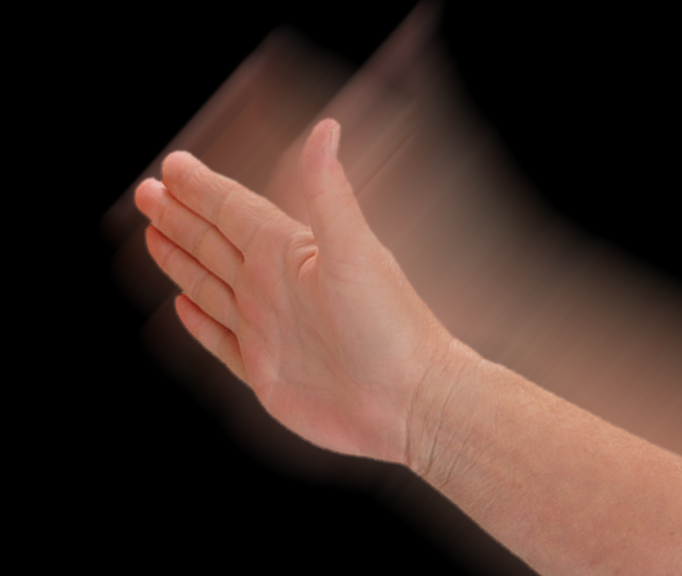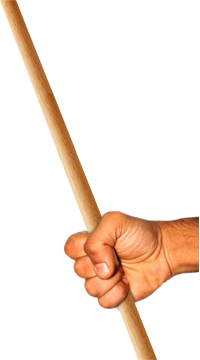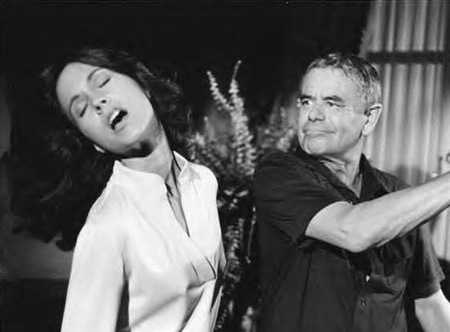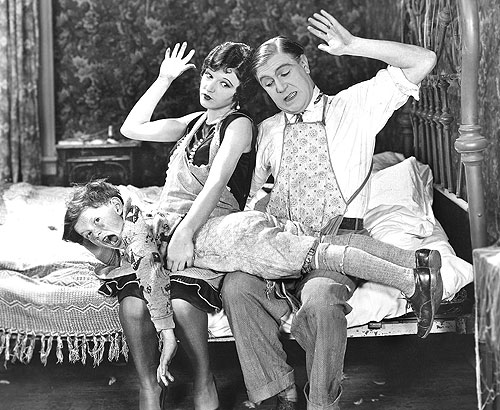
They would. They’d just walk up and give you a smack.
You start a choking-cough at the table nowadays and people just sit back politely and wait: “Are you okay?” Maybe they reach over and lightly pat your spine. “Don’t try and talk. Have sip of water”
Not in the 70’s, man. In the 70’s, they’d whap you.
My mom would stand right up and whack you on the back like she was chasing out a demon. She’d grab your shoulder with her left hand to keep you from falling into the plate, then whap you on the back until you either stopped coughing or begged her off. This was the 70’s version of the heimlich – getting beaten at the dinner table.
Emotionally out of control? In the 70’s, they’d just up and slap you.
I remember once, as a smaller child, I was having a hysterical crying fit and my mother didn’t know why, couldn’t get it out of me so, WHAP, across the face. Pulled me right out of the spiral. Your face suddenly buzzing like an electric shaver will do that for you; ground you at a time when you didn’t think it possible, when you don’t even know who you are anymore. I can’t remember what I was so upset about but I do remember that slap. That says something right there.
And you know? It was all okay. It was just fine. We survived. I can take a smack and am well past due for handing out a few. There were lots of things wrong with the 70’s but, in many ways, it literally beats everything that has come since.
They’d whap you in school, too.
My grade school principal was named Mr. Warden. My mom laughed like crazy when she heard that, thinking it was a joke, like he was the warden of a prison – but it wasn’t. It was his real name: Mr. Warden. He was barrel-chested, stern looking, and had a grey, buzz cut. I didn’t know what a marine was before I was in first grade but I took one look at Mr. Warden and knew: there’s a marine. He had a kind smile, though. I respected Mr. Warden but I didn’t fear him.
One of the first things you were told about Mr. Warden was that he had a big, wooden paddle in his office and he wasn’t afraid of using it. The legend of the paddle grew until it was big enough to swat away pterodactyls and had holes drilled in it that contained shreds of tushie from those it had whacked before but no, it was just a regular paddle – similar to what you might see someone serving hot bread on: short handle, broad surface, about ten by six, and half an inch thick.
 It was never used on me but you could see it there, hanging on the wall of his office. I do know a couple of kids who got on the business end of it. Apparently you were made to bend over and grab onto a chair but none of that dropping the drawers business and the force used was not enough injure but just to remind and instill. Mostly it just hung there, reminding you that every action has an equal and opposite reaction, but Mr. Warden used it when he had to, when it made sense. The climate was already changing then but there were certain kids, certain families, that still understood the value of a series of good, hard whaps on the ass. It wasn’t trauma or abuse but a reset button when administered correctly. You tell people that now and they just look at you.
It was never used on me but you could see it there, hanging on the wall of his office. I do know a couple of kids who got on the business end of it. Apparently you were made to bend over and grab onto a chair but none of that dropping the drawers business and the force used was not enough injure but just to remind and instill. Mostly it just hung there, reminding you that every action has an equal and opposite reaction, but Mr. Warden used it when he had to, when it made sense. The climate was already changing then but there were certain kids, certain families, that still understood the value of a series of good, hard whaps on the ass. It wasn’t trauma or abuse but a reset button when administered correctly. You tell people that now and they just look at you.
Before long, Mr. Warden retired and they brought in a new guy who was all soft, and thin, and friendly. He put colorful, construction-paper signs up all over the school about how special we all were and the paddle came down. He didn’t believe in corporal punishment. He believed that, inside even the worst, meanest, most dangerous kid, there was a sweet, little angel trying to get out and he treated everyone like that. He’d walk around touching kids with a kind comment and equally soft and soapy hands. He was liked … but not respected.
Of course, you can go too far with corporal punishment. It’s not hard to do. Sometimes giving somebody a whap only reinforces their bad behavior or just crosses the line from punishment into abuse.
My dad used to beat my brother with a long, half-inch dowel when he’d done something really bad, which was a pretty regular occurrence. We’re not talking about a spilling-spaghetti-sauce-on-the-new-carpet kind of offense but something more along the lines of shoplifting or vandalism; the unrepentant perpetration of petty crimes.
 He’d make my brother go fetch “the stick” from his wood shop. That’s how he’d say it: “Go get the stick.” Before my dad started the lecture, you weren’t sure if he was going to say this, so you’d wait, apprehensive through the whole thing, just dreading those words. You couldn’t even hear him, you’d be straining in such terrified anticipation. Then he’d say it: “Go get the stick,” and the color would drain from your world. You had to walk out the back door, across the yard, into the shop, back to the back wall, get “the stick” from the barrel by the saw, back through the shop, out the door, across the yard, and then back into the house where dad sat waiting to beat you with it. He’d make you get it so that you’d have a good long while to think about what was coming … as opposed to why you were about to be beaten. Very effective. I dreaded hearing those words even though they were never spoken to me.
He’d make my brother go fetch “the stick” from his wood shop. That’s how he’d say it: “Go get the stick.” Before my dad started the lecture, you weren’t sure if he was going to say this, so you’d wait, apprehensive through the whole thing, just dreading those words. You couldn’t even hear him, you’d be straining in such terrified anticipation. Then he’d say it: “Go get the stick,” and the color would drain from your world. You had to walk out the back door, across the yard, into the shop, back to the back wall, get “the stick” from the barrel by the saw, back through the shop, out the door, across the yard, and then back into the house where dad sat waiting to beat you with it. He’d make you get it so that you’d have a good long while to think about what was coming … as opposed to why you were about to be beaten. Very effective. I dreaded hearing those words even though they were never spoken to me.
I never watched one of the beatings my brother received but I heard them and I know dad went overboard because there were times after which my brother would limp with the pain, times there were marks from the backs of his ankles to his shoulders that would last for half a week. That’s not good. I’m not opposed to spanking when the occasion calls for it but that’s wrong. You might think somebody shoulda whapped my dad for that kind of thing but the fact is, they already had. That’s why he ran like that. My dad received excessive physical punishment for minor offenses from his step-father and thus the poison gene was passed on. They may have whapped you in the 70’s but, in the 50’s, they beat the living crap out of you.
I never got “the stick” because I was more the kind who sneaked some ice-cream rather than throwing a rock through a neighbor’s window, or at least I covered my tracks better. The one time I got whacked on the ass by my dad I deserved it and he didn’t go overboard because it was clear that this momma’s boy was so frightened of what was about to befall him that I didn’t require much juice from the old elbow to hammer in the point. When it was over I remember thinking “was that all?” Hell, my brother hit me harder than that every day …
The funny thing is, my dad and brother worked together all the time in that shop, repairing and creating things in wood and metal and all the while, in plain view, there was “the stick,” poking up out of the scrap wood barrel next to the saw. You’d think that would’ve hung over all they did together and, actually, I think it did. I know I sometimes shivered at the sight.
I watched my uncle beat my cousins with a belt once. Having just moved into town, they were staying with us until their house was ready and, one night, my two cousins started fighting with each other. Well, Uncle Gerald just hauled ’em back into the laundry room, took off his belt, and started whipping them with it. Big lashes with the leather end flying willy-nilly as my cousins leapt in yelping circles, brave enough to run from the blows if not the room. Our father ushered us away from the scene pretty quickly but the cries of our cousins and the snickering slap of the belt on their tender trunks reached every corner of the house. I still don’t know if I would’ve preferred the belt to the stick …
 My mom didn’t like tools when it came to smackin’. She preferred her hands and it was so uncommon of her to be moved to do so that you were never ready for it. You’d be sassing her, feeling all cool in front of your friends, and “WHAP!” your cheek is stinging and there’s a finger in your face conducting a lecture on the merits of not getting too big for your britches. I think she slapped, cuffed, or swatted me as a form of punishment a total of six times in 18 years, and I deserved every one of ’em.
My mom didn’t like tools when it came to smackin’. She preferred her hands and it was so uncommon of her to be moved to do so that you were never ready for it. You’d be sassing her, feeling all cool in front of your friends, and “WHAP!” your cheek is stinging and there’s a finger in your face conducting a lecture on the merits of not getting too big for your britches. I think she slapped, cuffed, or swatted me as a form of punishment a total of six times in 18 years, and I deserved every one of ’em.
I grew up well aware of the difference between effective physical discipline and abuse and the steps one can take to avoid using either. I can count on one hand the times I decided to swat or slap my daughter when she was young enough for such methods to be effective. Once we were in a Walmart and, uncharacteristically, she began to act up, to throw a fit for some dumb thing. I was so surprised – she’d never done this before. I hauled her up by her arm and gave her a good, soild whap on the fanny. I don’t think she expected that; it was a day of firsts. Settled her right down, too, and the lesson stuck: she never repeated the performance. Not once. A woman an aisle away gave me a look, though. A look of shock and horror. A look that said I prefer my violence on tv and my children running ramshackle over myself and the world with no sense of anything but entitlement. Well, congrats, lady: you’ve got it.
 The thing about a little whap now and again – when administered smartly, meaning not out of anger, sadism, and with a modicum of actual force – is that it can be so instructive. People don’t want to hear that. It’s not supported by the current studies we choose to believe in. People think that any sort of shock to the system, be it a slap on the fanny or a slip on the grass, is a thing of worse than no value and to be avoided at all costs. I say without it you are getting set up for a far harder, more damaging shock in the long run. One that will come when you’re too old to be ill-prepared for the harsh realities of this world. A spank to the bottom of a young child, who is past due learning to heed adult instruction, is infinitely less destructive, more helpfully instructive, than a spank by a red-hot stove burner or a fast-moving car bumper. Learning that there are real limits, that we must earn our place in this world, and that a little whap on the back aint gonna kill ya, are important lessons that serve well later in life.
The thing about a little whap now and again – when administered smartly, meaning not out of anger, sadism, and with a modicum of actual force – is that it can be so instructive. People don’t want to hear that. It’s not supported by the current studies we choose to believe in. People think that any sort of shock to the system, be it a slap on the fanny or a slip on the grass, is a thing of worse than no value and to be avoided at all costs. I say without it you are getting set up for a far harder, more damaging shock in the long run. One that will come when you’re too old to be ill-prepared for the harsh realities of this world. A spank to the bottom of a young child, who is past due learning to heed adult instruction, is infinitely less destructive, more helpfully instructive, than a spank by a red-hot stove burner or a fast-moving car bumper. Learning that there are real limits, that we must earn our place in this world, and that a little whap on the back aint gonna kill ya, are important lessons that serve well later in life.

I have to respectfully disagree. Children act up for a reason. Sometimes what may seem dumb to an adult is valid to a child
Well, some of my rant is tongue in cheek (which is why I wrote it instead of spoke it – my diction is terrible this way) but I remain convinced that children allowed to run roughshod over the landscape become adults running roughshod over the landscape and the important lesson of respect must sometimes be forcefully taught. Your argument that a child reasoning may be valid is worth considering but, having been a child and an adult as well as having raised children to (near) adulthood, I can say that a lot of the time a child’s reasoning (as well as an adult’s!) is based on a preponderance of selfishness and ignorance – it may look valid to the child but that does not make it so and a seasoned, responsible adult is in a better position to make the determination which is which as well as require compliance to rules. All the same, I also believe that 99.9% of the time, no physical interruption is needed and, even then, had best be tempered with gentle compassion.